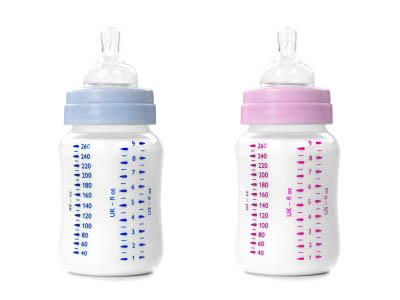Can You Choose the Sex of Your Baby?

For centuries, women and men have been trying to influence the sex of their baby. Back in the 16th century, Henry VIII and Anne Boleyn were desperate for a son and therefore and heir to the throne of England. In recent years, all eyes were on David and Victoria Beckham who, after having three boys, finally had the baby girl they'd hoped for - but were they able to influence that outcome or was it just luck of the draw?
American research has found that four out of ten infertile women would like to choose the sex of their child if it was offered to them at no cost.
A biology recap
All of a woman's eggs carry an X chromosome. Sperm carry either an X or a Y chromosome. When the egg and sperm fuse, the two chromosomes that are then contained in the fertilised egg determine the sex of the baby. An egg that has been fertilised by an X sperm will become a baby girl, whilst fertilisation with a Y sperm will result in a baby boy.
The folklore
There is a wealth of old wives' tales and folklore surrounding the ideal way to produce a baby of either gender. Your friends, work colleagues and even complete strangers will no doubt tell you a certain method 'definitely worked' for them. These range from the bizarre (keeping a wooden spoon under your bed to have a girl) to the ridiculous (having sex on odd days of the month to have a boy). Then there are others which might sound more plausible, such as having sex on the day you ovulate to have a boy or having sex in the missionary position to have a girl, but unfortunately there is no scientific research which backs up any of these theories.
Now for the science bit
Numerous scientific methods are available to produce the baby girl or boy you so desire, but they range in effectiveness. Here, we cover some of the better accepted scientific techniques.
The only way to be 100% certain of the baby's sex is through pre-implantation genetic diagnosis (PGD) where fertility doctors select either male or female eggs (known as embryos) to implant in the womb. However, PGD is only available in the UK for people with a medical reason for needing to choose one sex over another and it is very expensive.
Other scientific methods include the sperm-sorting Ericsson technique that selects between the faster-swimming Y-chromosome (male) sperm and the slower X-chromosome (female) sperm. Sperm of the chosen gender are then directly inserted into the uterus by artificial insemination. The Ericsson technique is non-invasive and less expensive than PGD but there is no guarantee of success.
The Shettles method is all about timing. The theory is the closer you have sex to when you ovulate, the more chance you have that your baby will be a boy because the Y-chromosome sperm is faster and will get to the egg first. The theory follows that if you have sex 2 to 4 days before ovulation you increase your chances of having a girl. To most accurately pinpoint when you are ovulating, it is recommended that you take your basal body temperature every day (first thing in the morning) or use an ovulation prediction kit. The Shettles method is non-invasive and low cost, but again there is no guarantee of success and no scientific proof that it actually works.
The mum-to-be
There is a wealth of research looking at women who are trying to conceive and how they can influence the sex of baby they have.
Some researchers believe that even your personality can have an effect. Researchers in New Zealand noticed that dominant and confident women were more likely to have boys due to their higher levels of female testosterone.
Diet has also been found to make a difference, so get counting your calories! Research in 740 women discovered that those on a high-calorie diet (2,413 calories a day) around the time they ovulated had 10% more boys than women on lower-calorie diets (2,283 calories a day). Scientists think the tendency for women to be on lower calorie diets may explain why the number of boys born in the developed countries of the world is falling.
As the saying goes, breakfast is the most important meal of the day, and it certainly seems to be true when you are trying to conceive either a boy or a girl. In the same diet study, women who skipped breakfast were more likely to have girls. When you skip breakfast you reduce the level of glucose (sugar) in your blood. In vitro fertilisation (IVF) research has shown that high levels of glucose encourage the development of male embryos and discourage female embryos.
A different scientific study found that 60% of women who regularly ate cereal had boys, compared with 43% of women who ate less than one bowl of cereal a week. This research also found that women who ate high levels of potassium (found in bananas and tomatoes), sodium (salty foods) and calcium (dairy products) were more likely to have a baby boy. Scientists don't yet know why.
While it might be tempting to have a go at influencing the sex of your baby, take caution if this means altering your diet at all. If you are trying to conceive, it is important to try and keep to a healthy diet and lifestyle. Don't consume more than 6g of salt a day and avoid becoming overweight, don't go on any radical diets either as these could easily affect your pregnancy and baby.
